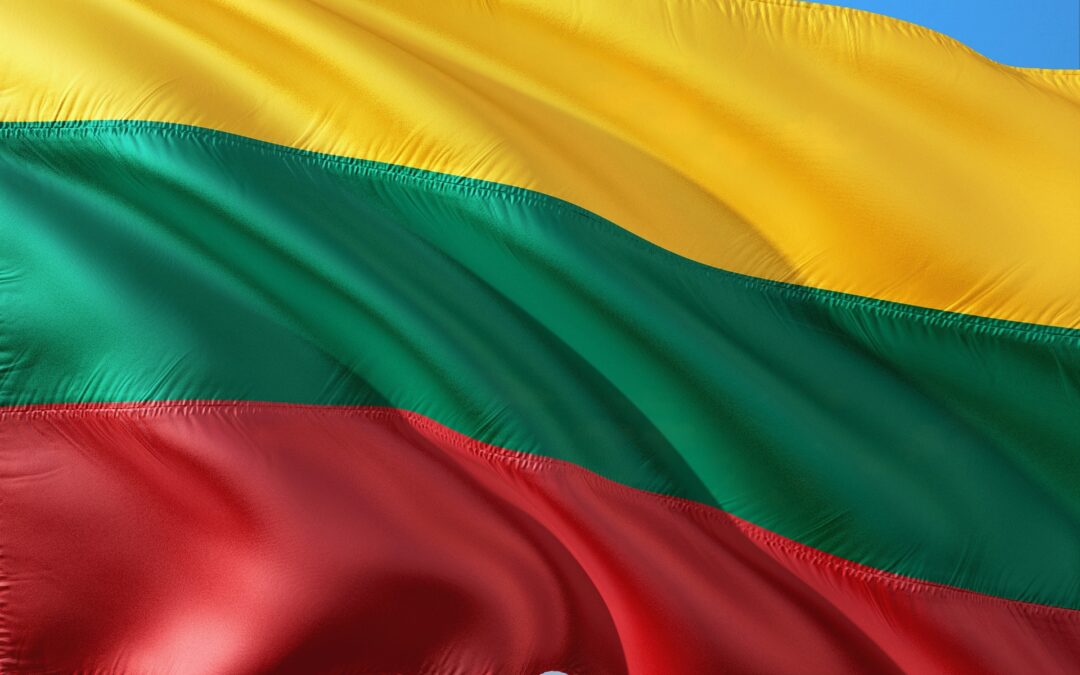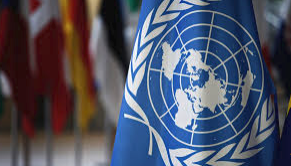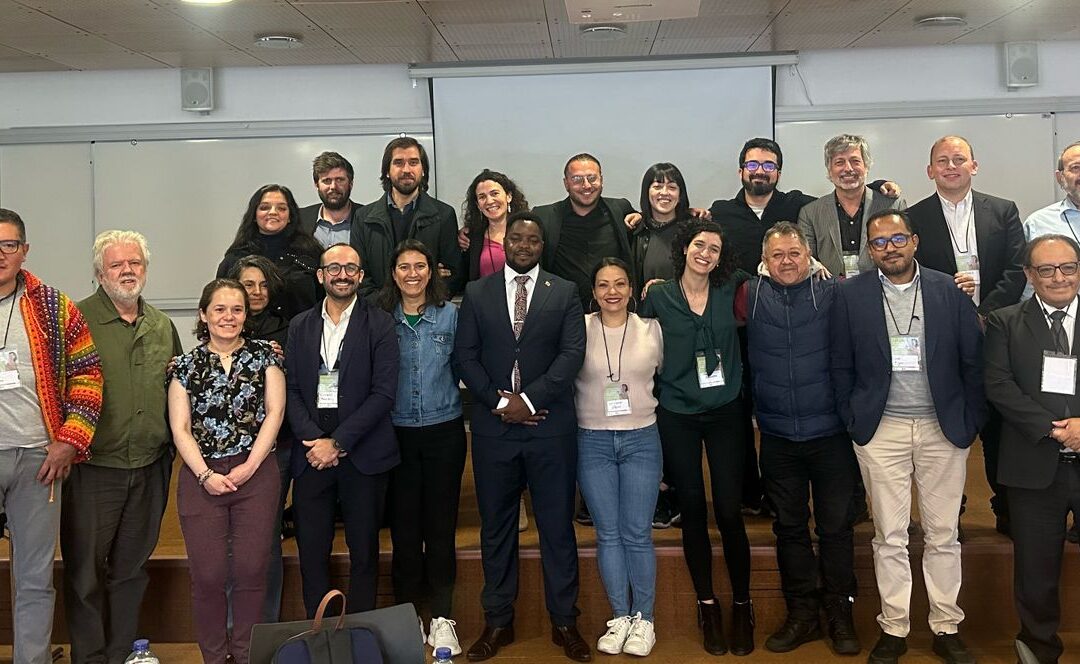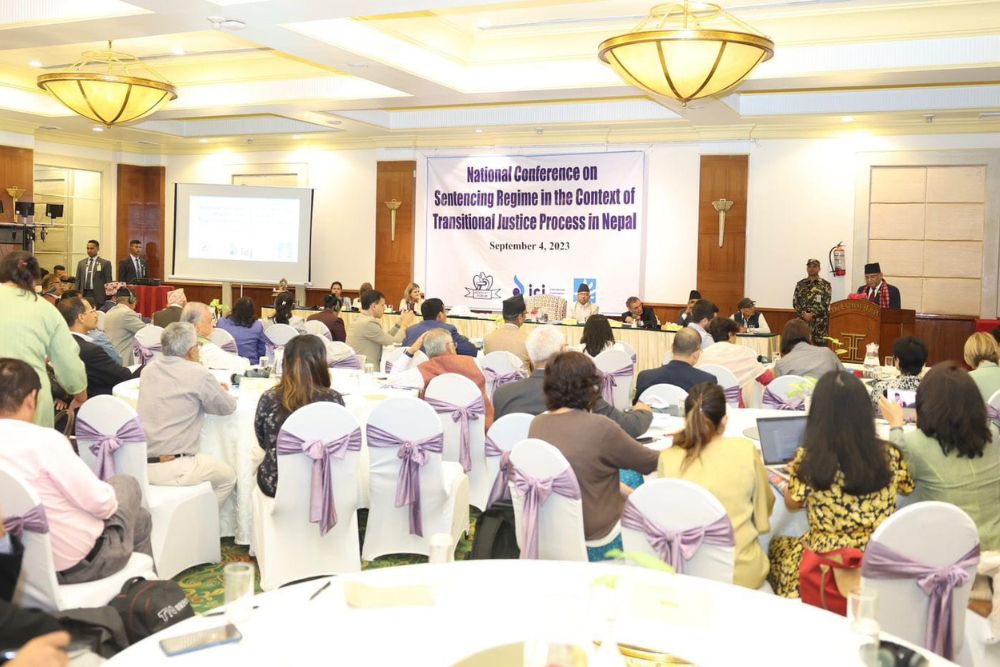Oct 13, 2023 | News
Geneva, 13 October 2023
In this statement, the International Commission of Jurists (ICJ) looks back at five weeks of consideration of a wide range of country situations and human rights thematic concerns, and at intense negotiations during the 54th session of the United Nations Human Rights Council (HRC) that ended today in Geneva.
This session resulted in some positive actions for the protection and promotion of human rights and for accountability for grave human rights violations. However, States also failed to address the dire human rights situation in a number of countries. They also failed to support unanimously a number of important initiatives towards the greater enjoyment of human rights for all without discrimination.
Welcoming the renewal of a number of Special Procedures’ mandates
The ICJ welcomes the renewal of a number of Special Procedures’ mandates on both country situations and themes. In particular, the mandates on the situation of human rights in Afghanistan, Cambodia and Russia have been extended. With regard to thematic mandates, the ICJ particularly salutes the adoption of resolutions enabling the continuation of the work of the UN Special Rapporteur on Truth, Justice, Reparation and Guarantees of Non-Recurrence, as well as of the Working Group on Enforced or Involuntary Disappearances. With respect to this, the ICJ considers it very positive that the resolution on Enforced or Involuntary Disappearances explicitly encourages States to participate in the upcoming world congress to promote the ratification of the International Convention for the Protection of All Persons from Enforced Disappearance in 2024.
Continued intergovernmental negotiations on the issue of private security companies
The ICJ is actively engaged in supporting the elaboration of new standards to enhance human rights protection in respect of the activities of private military and security companies. In this context, the ICJ has followed the HRC’s thematic debates on both the use of mercenaries and the work of the intergovernmental working group tasked with the elaboration of a new regulatory framework on private military and security companies. In light of this, the organization welcomes the renewal of the mandate of the intergovernmental working group to negotiate such standards.
Celebrating the creation of a new investigative mechanism on the situation in the Sudan
The ICJ applauds the creation of a robust independent international fact-finding mission on the human rights and humanitarian crises resulting from the ongoing armed conflict in the Sudan. The ICJ had joined a group of 120 civil society organizations that sent a letter to States, on 1 September 2023, in advance of the HRC session, urging the creation of such an independent investigative mechanism.
Adoption of important thematic resolutions
The ICJ also considers that the adoption of a new resolution providing more capacity for the Office of the UN High Commissioner for Human Rights (OHCHR) to support States in the realization of economic, social and cultural rights (ESCR) is a positive step.
However, the ICJ urges States to ensure:
• respect for the independence of the OHCHR in carrying out additional work in this area;
• that ESCR be treated on an equal footing with other human rights; and
• that any new work builds upon the existing work carried out by the HRC and by the OHCHR for several decades in this area.
After intense negotiations, the HRC eventually adopted the resolution on preventable maternal mortality and morbidity and the one on the question of the death penalty. Fortunately, all amendments aimed at weakening human rights protections in both texts were defeated.
However, the ICJ deplores the persistence of ploys intentionally engineered during the negotiations of these two resolutions, which, if successful, would have been detrimental to the enjoyment of women and girls’ human rights, including to sexual and reproductive health and comprehensive sexuality education. In addition, purported concern over States’ sovereignty negatively impacted a number of debates and threatened to impair progress in the protection of universal human rights.
Regretting the inability of the HRC to address key situations
These controversies took place at a very polarized HRC session and reflect the broader geopolitical realities and ideological tensions worldwide.
In this regard, the ICJ regrets that the HRC failed to continue the mandate of the International Commission of Human Rights Experts on Ethiopia. This commission was established to respond to the dramatic human rights situation after the conflict between the Federal Government and the Tigray People’s Liberation Front (TPLF) broke out in 2020. Since then, widespread violations of human rights and serious violations of international humanitarian law have been committed in Tigray, Amhara and Afar in northern Ethiopia. As the situation is deteriorating even further, the failure of the HRC to renew the mandate of the Commission terminates the international independent investigation of atrocity crimes committed in the context of this conflict and is an abject dereliction of duty on the part of Member States of the HRC.
With regard to Afghanistan, while the extension of the mandate of the Special Rapporteur on the human rights in the country, with additional resources to carry out his work, is an important measure towards monitoring the dire human rights and humanitarian situation, the ICJ deeply regrets that the HRC was not able to give a response commensurate with the gravity of the situation and failed to create a robust independent accountability mechanism to investigate, collect and preserve evidence of the widespread and systematic human rights violations and atrocities crimes committed in the country.
Last but not least, the ICJ regrets that the Council could not take action on the violations of international human rights law and international humanitarian law committed by all parties in Israel and the OPT since the attacks in Israel by Palestinian armed groups started on 7 October 2023.
https://www.icj.org/israel-occupied-palestinian-territory-immediately-end-attacks-on-civilians/

Oct 9, 2023 | Access to justice, Advocacy, Cases, News
Today, the International Commission of Jurists (ICJ), the AIRE Centre (Advice on Individual Rights in Europe), the Dutch Council for Refugees (DCR), and the European Council on Refugees and Exiles (ECRE), submitted a third-party intervention to the European Court of Human Rights in the case S.M.H. v Lithuania, concerning the deprivation of liberty of an asylum seeker.
S.M.H., an Iraqi citizen, who entered Lithuania irregularly and sought asylum, was subsequently arrested and detained in various centres. The applicant claimed that his detention was not justified, lacking both individualised assessment and effective legal assistance.
In its intervention, the ICJ and its partners focus on Article 5.1 and Article 5.4 of the European Convention of Human Rights (ECHR). In particular, the interveners analyse the requirements for lawful deprivation of liberty, the right to have the lawfulness of detention promptly examined by a Court, and the right to have effective legal assistance. The intervention considers both the EU and international law and standards related to deprivation of liberty and the right to an effective remedy against unlawful detention and material conditions of detention.
The key points of the intervention are as follows:
- The interveners submit that under Article 5.1 detention must not be arbitrary, and be prescribed by law both substantively and procedurally. The intervention highlights that detention must be a measure of last resort, it should follow an individualised and exhaustive examination, and it may be imposed only when less strict measures cannot be effectively applied.
- Regarding Article 5.4, the interveners clarify that an effective judicial review of detention prescribed by law and accessible in practice constitutes a safeguard against arbitrary detention. Legal aid and competent legal representation are essential elements in ensuring the accessibility and effectiveness of judicial review of the lawfulness of detention.
- Finally, the interveners stress that lack of access to clear information, lack of access to a lawyer, and lack of access to an effective remedy contravene the guarantees under Articles 3 and 13 ECHR, rendering them ineffective, theoretical, and illusory.
Read the full intervention here.

Oct 6, 2023 | Cases, Uncategorized
The International Commission of Jurists (ICJ), together with the AIRE Centre (Advice on Individual Rights in Europe), the Dutch Council for Refugees and the European Council on Refugees and Exiles (ECRE) submitted today a third party intervention in the Communicated case No. 193/2022, before the UN Committee on the Rights of the Child.
The case concerns immigration detention of an 11-year-old girl from Afghanistan together with her older sister and parents, pending transfer to another EU Member State according to the EU Dublin Regulation.
The interveners focus in their submission on the prohibition of immigration detention of children, including when accompanied by family members, the right to be heard, access to information and legal representation and age assessment in the migration context.
The full intervention can be read here.

Sep 21, 2023 | Advocacy, News
Between 18 and 20 September 2023, the International Commission of Jurists (ICJ), the Access to Justice Knowledge Hub and the Andes University’s Programme of Action for Equality and Social Inclusion (Programa de Acción por la Igualdad y la Inclusión Social -PAIIS) jointly held a regional workshop in Bogotá, Colombia, on the discriminatory, disproportionate and often arbitrary use of criminal justice systems against marginalized individuals and groups in Latin America. The event brought together approximately 30 members of civil society organizations, justice actors, judges and representatives of government institutions. Participants came from a range of Latin American countries, including Argentina, Chile, Colombia, Ecuador, Mexico, Paraguay, and Peru.
The workshop centred around the ICJ’s “8 March Principles for a Human Rights-Based Approach to Criminal Law Proscribing Conduct Associated with Sex, Reproduction, Drug Use, HIV, Homelessness and Poverty” (8 March Principles) as well as the UN Special Rapporteur on the rights of persons with disabilities’ “International Principles and Guidelines on Access to Justice for Persons with Disabilities”. Participants agreed that the alarming worldwide trend of over-criminalization was evident in Latin America too. This trend hinders the advancement of human rights, especially the rights of marginalized individuals and groups, such as LGBTI+ persons, people living with HIV, women with disabilities and women living in poverty.
In his keynote presentation, ICJ Commissioner Rodrigo Uprimny discussed “the inevitability of criminal law”, describing it as “a bitter necessity for social coexistence”. Certain conduct, he argued, such as acts constituting human rights abuses, must inevitably be criminalized by States. Against this background, Uprimny also noted that there is tendency towards “penal populism” in Latin America, often resulting in the disproportionate and discriminatory use of criminal law in various contexts, such as social protest, drug use and abortion. Commenting on the importance of the 8 March Principles in Latin America, he therefore said:
“Reality shows that the conduct addressed by the Principles is precisely the conduct where the discriminatory impact of criminal law tends to be very strong (…) on all grounds of discrimination: gender, race, disability, poverty, etc. (…). The Principles call for caution against the tendency toward over-criminalization. (…). overcriminalization is not only a matter of authoritarian right-wing governments in Latin America. In the human rights world, there is a movement towards retributivism. (…) [The use of criminal law] may sometimes be justified, but sometimes it can have perverse effects.”
The participants reflected on common predicaments and barriers that criminal justice systems impose against marginalized groups and individuals in Latin America, including in relation to the disproportionate impact of criminal law on women, homeless persons, persons living with HIV, people who use drugs and persons with disabilities.
A central element of the discussion was that human rights violations as a result of criminal proceedings involve the failure of a range of actors — including judges, prosecutors, police officers and other justice actors, but also of psychiatrists and social services — to understand and apply international human rights standards. In this regard, participants highlighted, inter alia, the lack of knowledge and application of the Convention on the Rights of Persons with Disabilities and of the jurisprudence of the UN Committee on the Rights of Persons with Disabilities in relation to access to justice for persons with disabilities. As a result, persons with disabilities in Latin America, and particularly those with psychosocial disabilities, face serious obstacles in exercising their right to legal capacity in the context of criminal proceedings.
Participants committed to a common agenda for joint advocacy, including through the provision of workshops to justice actors, such as judges, in Latin America. In particular, more in-depth knowledge of international human rights law and standards in the criminal justice context, as well as disability rights, is needed.
Contacts:
Rocío Quintero M, ICJ Legal Adviser for the Latin America Programme, e: rocio.quintero@icj.org
Timothy Fish Hodgson, ICJ Senior Legal Adviser, Economic, Social and Cultural Rights, e: timothy.hodgson@icj.org

Sep 7, 2023 | News
At a National Conference organized on 4 September by the International Commission of Jurists (ICJ) in collaboration with Advocacy Forum, Nepal’s Prime Minister Pushpa Kamal Dahal (Prachanda) committed his government to establishing a credible and effective transitional justice process and to ensuring that proposed legislation was amended to make it fit for the purpose.







